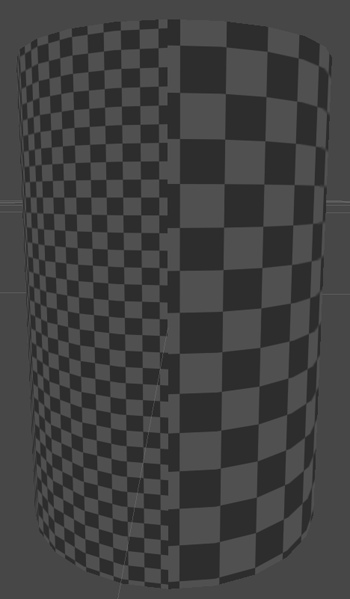Lightmapping UVs
Unity will use UV2 for lightmaps, if the channel is present. Otherwise it will use primary UVs.
Unity can unwrap your mesh for you to generate lightmap UVs. Just use the Generate Lightmap UVs setting in Mesh Import Settings.
Advanced Options for Generate Lightmap UVs:
| Pack Margin | The margin between neighboring patches, assuming the mesh will take entire 1024x1024 lightmap measured in pixels. That has great effect: to allow filtering, Lightmap will contain lighting information in texels near patch border. So to avoid light bleeding when applying Lightmap there should be some margin between patches. |
| Hard Angle | The angle between neighboring triangles, after which the edge between them will be considered hard edge and seam will be created. If you set it to 180 degrees all edges will be considered smooth: this is useful for organic models. The default value 88 degrees: this is useful for mechanical models |
| Angle Error | Maximum possible deviation of UVs angles from source geometry angles, in percentage. Basically it controls how similar triangles in uv space will be to triangles in original geometry (the value, the more similar triangles will be). Usually you wants it pretty low to avoid artifacts when applying Lightmap. Default is 8 percent. (This value goes from 0 to 100) |
| Area Error | Maximum possible deviation of UVs areas from source geometry areas, in percentage. Basically it controls how good relative triangle areas are preserved. Usually that is not very critical, and moving that up can allow to create less patches; although you should recheck that distortion do not deteriorate Lightmap quality, as that way triangles may have different resolution. Default is 15 percent. (This value goes from 0 to 100) |
If you prefer to provide your own UVs for lightmapping, remember that a good UV set for lightmapping:
- Is contained within the [0,1]x[0,1] space
- Has no overlapping faces.
- Has low angle distortion, that is deviation of angles in UVs and in source geometry.
- Has low area distortion, that is, relative scale of triangles is mostly preserved, unless you really want some areas to have bigger Lightmap Resolution.
- Has enough margin between individual patches.
Some examples of the hints suggested above:
Angle distortion
These screenshots were made for equal resolution, but with different uvs. Look at artefacts, and how the shape of light was slightly changed. There are only 4 triangles, actually, so shape distortion can be far uglier.


Area distortion
There are 2 spotlight with same parameters, the difference being only pointing to areas with different lightmap resolution, due to relative triangle scale being not preserved





